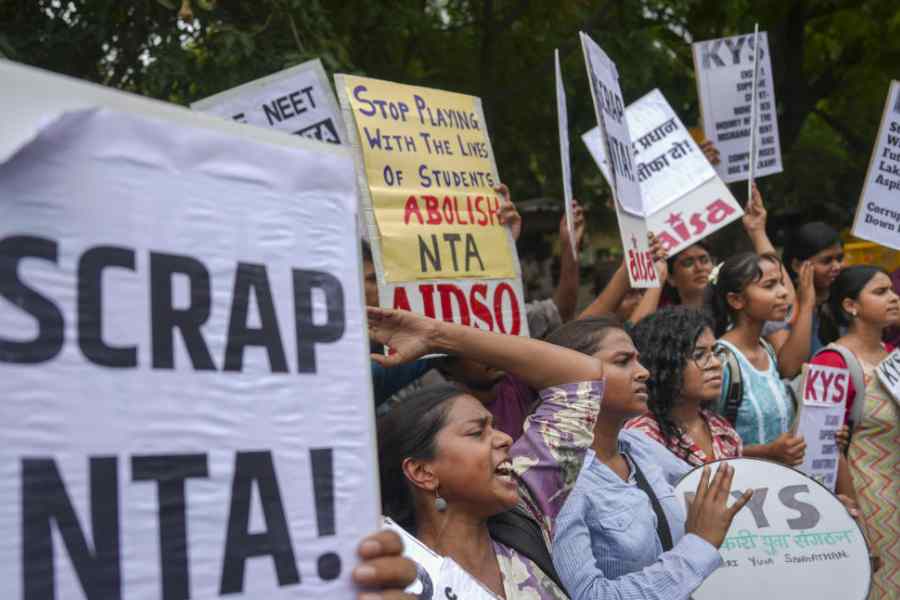The Supreme Court on Friday said there were no indications of “mass malpractice” or “a localised set of candidates being benefited leading to abnormal scores” in this year’s NEET-UG, explaining its earlier verdict refusing to cancel the exam.
But it chided the National Testing Agency (NTA) for multiple failures in conducting the undergraduate medical entrance test, from lack of coordination with the exam centres to insecure transport of the question papers.
“…There are no abnormalities in the results for 2024 when compared with the results for the past two years. The report of the director of IIT, Madras also supports the conclusion of this court. The report stated that there were no ‘abnormal indications’ in the results for this year, when compared to previous years,” the judgment said.
“It (the report) also stated that ‘analysis shows that there is neither any indication of mass malpractice nor a localised set of candidates being benefitted leading to abnormal scores’. Hence, an analysis of the results does not lend support to the case of the petitioners who seek the cancellation of the exam.”
The court added: “The leak of the paper does not appear to be widespread or systemic. It appears to be restricted to isolated incidents in some cities, which have been identified by the police or are in the process of being identified by the CBI.”
On July 23, the court had dismissed a batch of PILs that sought cancellation of the NEET and a retest over alleged irregularities including paper leaks, the award of substantial grace marks to some candidates, and a large number of examinees securing full marks.
The bench of Chief Justice D.Y. Chandrachud, Justice J.B. Pardiwala and Justice Manoj Misra had at the time announced it would provide detailed reasons for dismissing the petitions, which it did on Friday.
Writing the judgment, Justice Chandrachud said that while the available material did not indicate that the NEET’s integrity was vitiated systemically, the way the NTA had conducted the exam this year gave rise to serious concerns.
The paper was leaked in Patna and Hazaribagh. In one of the centres, the rear door of the strong room was opened and unauthorised people were allowed to access the question papers, the judgment said. This amounts to a serious security lapse, it added.
The top court cited several administrative and procedural flaws by the NTA:
⦿ Students at 12 centres who were meant to be given a set of question papers distributed via the SBI actually received an alternative set, distributed via Canara Bank, suggesting a lapse in coordination and oversight. (The NTA prepares alternative sets of question papers as a possible shield against leaks.)
That four centres managed to rectify the mistake while eight continued with the incorrect papers suggests a lack of effective communication between the NTA, the centre coordinators and the banks involved in the distribution process.
⦿ The use of e-rickshaws in transporting question papers to the exam centres raises concerns about vulnerability to theft, tampering and mishandling, posing a serious risk to the integrity of the examination process.
⦿ The use of private courier services to transport exam materials may not ensure the same level of security as official channels. Proper protocols and accountability measures need to be in place to ensure secure transport.
⦿ There was a lack of systematic CCTV surveillance, which is necessary to ensure that all procedures are followed correctly.
Some 23 lakh candidates took the NEET-UG on May 5 at 4,750 centres across 571 Indian and 14 foreign cities, competing for 108,000 undergraduate medical seats at government and private colleges.











